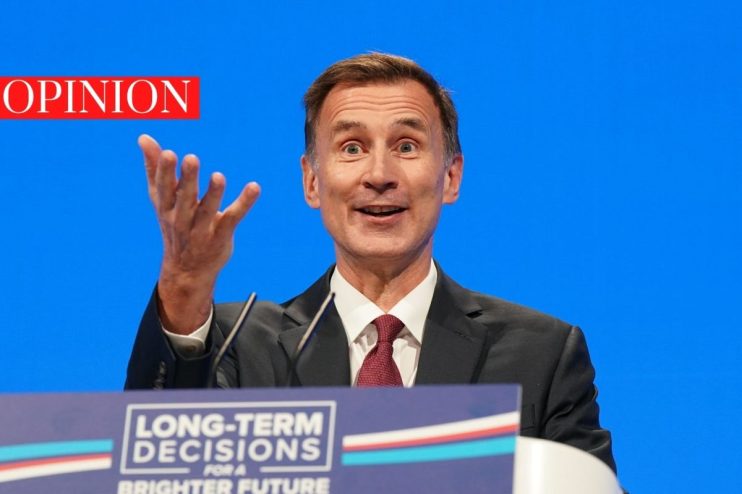With no wiggle room to cut or raise taxes, it’s time to sweat the small stuff

When you have no room to make sweeping cuts, every change to taxes becomes hyper-political – like VAT on private schools or inheritance tax, writes Tim Sarson.
It is a nostalgic time of year. Just over 12 months since Kwasi Kwarteng’s infamous “fiscal event” blew in like an unforecasted autumn gale and kick-started the busiest few days of my media career to date. Tax policy was suddenly box office. Not just the usual point of contention between political parties, but a massive fault line within factions of the governing party and enough to cause the end of not only the chancellor but the ephemeral autumn Prime Minister of 2022.
Tax was on the philosophical front line of how to get Britain growing again. On one side: Britannia Unchained: tax-cuts, a bonfire of regulations, and setting the country free of its managerialist shackles. On the other, the fiscal conservatives: cautious about the public deficit, terrified of the markets. And watching on, the Labour party, pondering its next move.
Those days are long gone. It’s many months since a journalist last opened an interview by asking me “what the hell is happening?” Tax policy is almost sedate now. I miss the chaos, but I am also glad for the calm.
So where are the parties now, a year before a general election? My tax policy team has been tracking announcements by the three main national parties since the summer and through conference season. We rank each proposed tax change according to how likely it seems, ranging from specific policy pledges to vague backbench chatter.
What we’ve noticed is how little any of the tax proposals on the table have really big numbers attached. Nobody is proposing cutting the corporate tax rate back to 19 per cent (reversing the reversal of the reversal, as some have described it). Nobody has mooted resurrecting the health and social care levy. Nor is anyone sailing within several nautical miles of Trussonomics. On a macro-fiscal level, there’s barely a hair’s breadth between Labour and the Tories.
We shouldn’t be surprised. In last month’s column I noted the strange impasse we find ourselves in: the tax burden on the economy is the highest for decades and there is little political appetite to raise it further; but rising interest rates and inflation in public spending commitments mean there is little fiscal headroom either. Can’t cut tax, won’t raise it.
That’s not to say there aren’t big tax arguments ahead. But they will be about tax’s role as a means to overtly partisan ends. The government have suggested ending Inheritance Tax for example. This would be a highly political act, with minimal impact on the exchequer. Labour wants to levy VAT on private schools, treat carried interest as income and abolish the non-dom regime. These policies are about fairness and class politics, not balancing the books. In the world of tax incentives both parties are keeping their powder dry, but I expect Labour’s platform to focus much more on green investment than the Conservatives.
And for a taste of where policy might be heading longer term it’s always worth checking in on the Lib Dems. While they will not be forming the next government, we should, instead, think of them as a highly influential think tank with freedom to come up with new ideas. That the two main parties may look to use.
So where does the Lib Dem draft manifesto point us? At tax as a precision tool. The future seems to be highly targeted, pseudo-hypothecated tax measures. By which I mean three things. The first is taxing a particular sector or activity and ringfencing the revenue to spend on something related – for example their proposed sewage tax to subsidise water company investment and the 1p levy on new garments to fund recycling. The second is reforming tax to nudge business and consumer behaviour, like graduating Stamp Duty Land Tax along energy efficiency lines and replacing business rates with a commercial landowner levy (and business rates reform is badly overdue). And the third is handing out tax breaks to encourage things that are good for the country or planet, like you or I being able to offset spending on household energy efficiency against income tax. All Lib Dem proposals for now, but keep a beady eye out for these crossing over into Labour policy.
Expect much more of this in the next five years. With the big tax and spend debates on hold, the smaller hobbyhorses are going to proliferate.